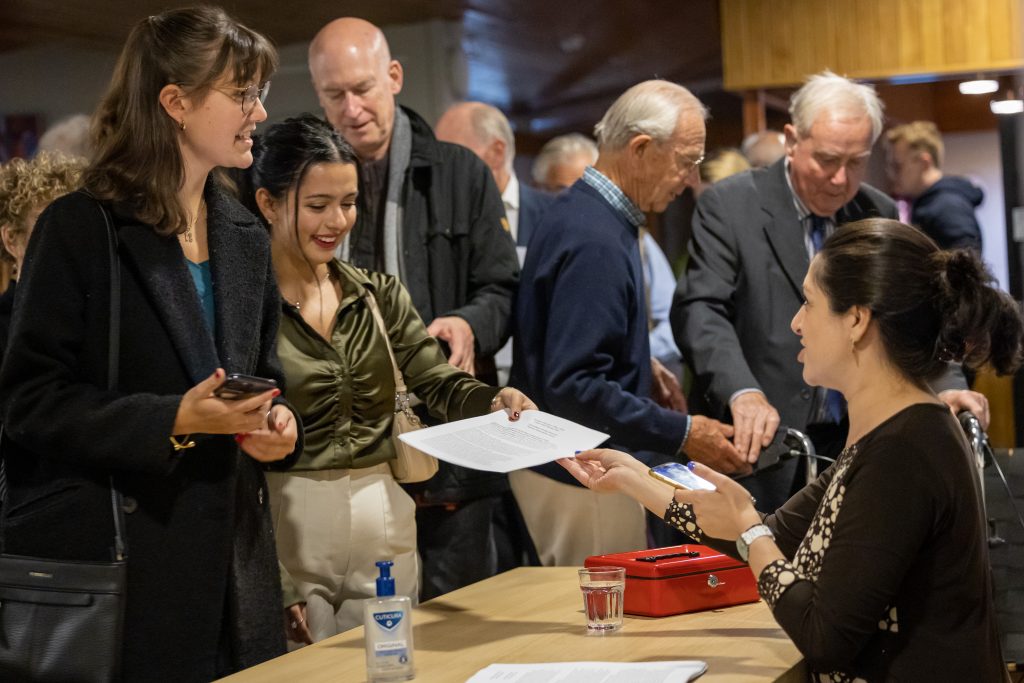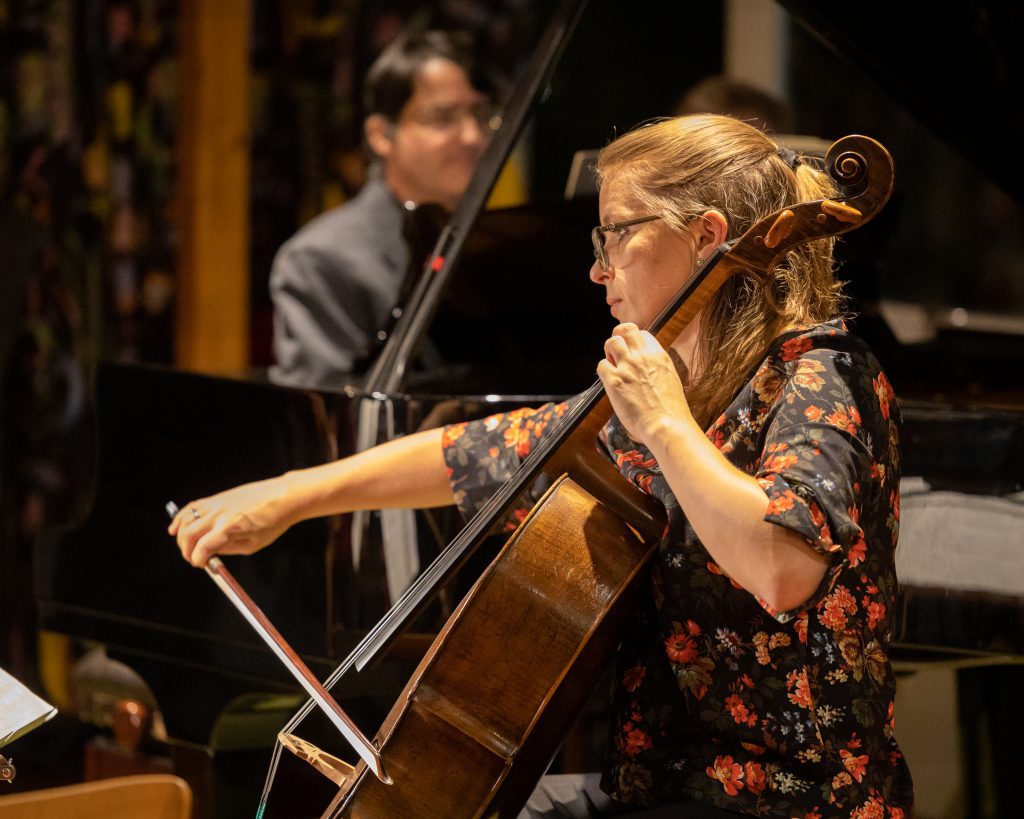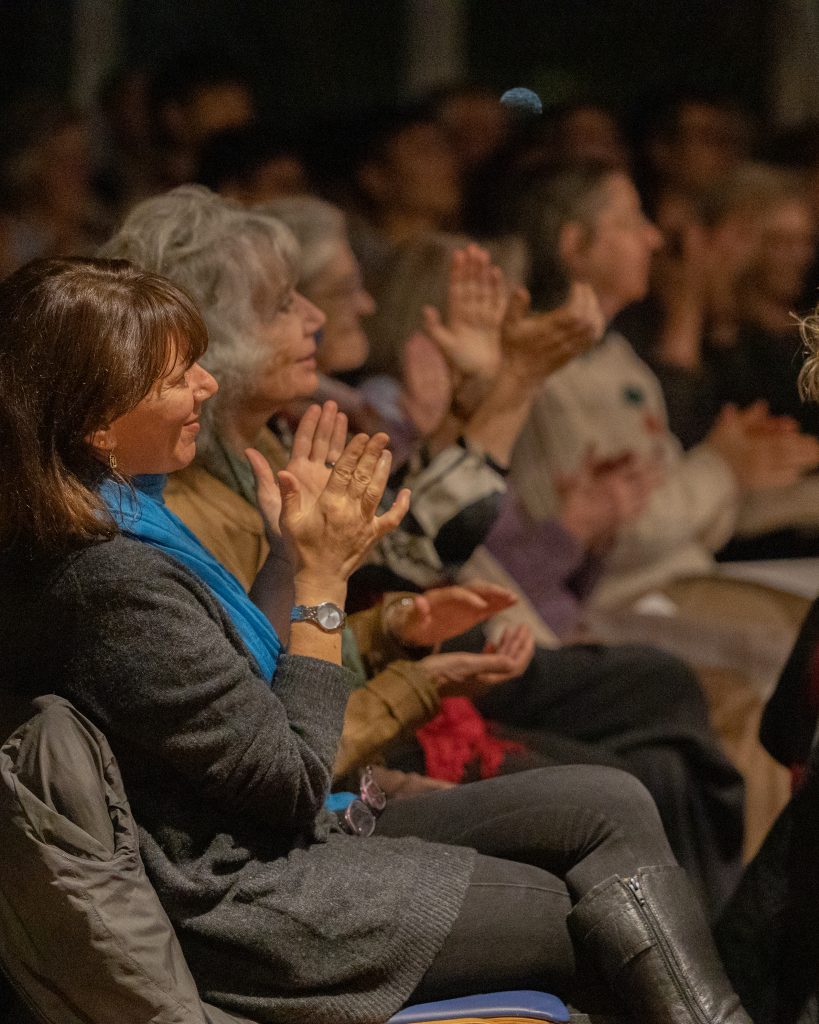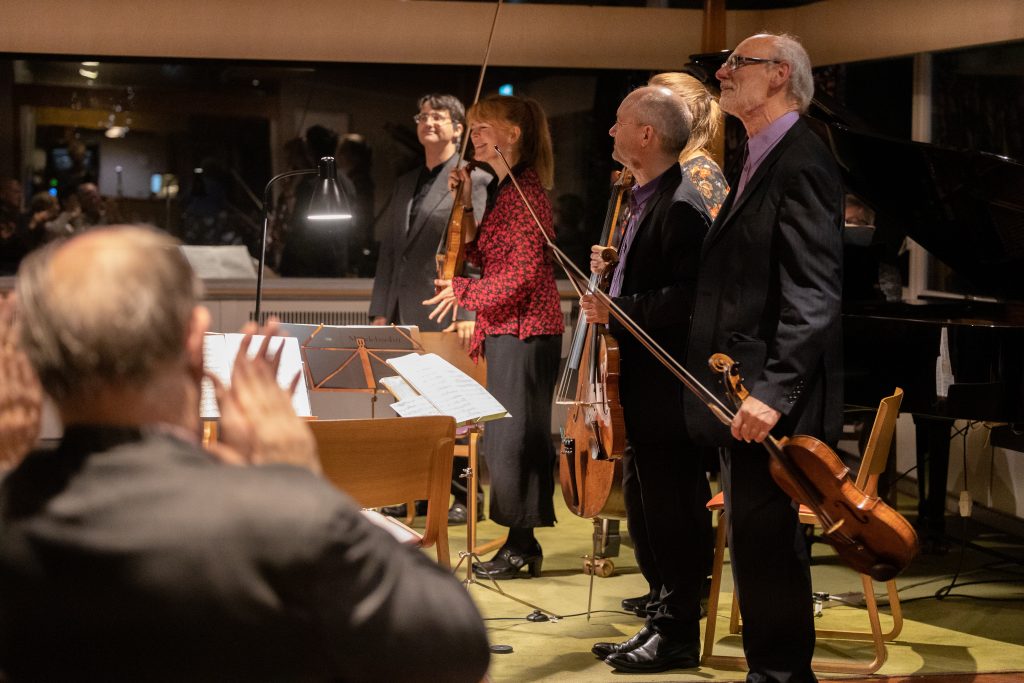Fitzwilliam String Quartet concert series 2022/23
The Fitzwilliam String Quartet is Clare Hall’s quartet-in-residence, and is today one of the longest-established string quartets in the world. We are thrilled to present their programme of Clare Hall concerts for 2022/23, with a repertoire of compositions spanning 404 years.
Founded in 1968 by four Cambridge undergraduates, the group quickly achieved international recognition as a result of its members’ personal friendship with Dmitri Shostakovich and their subsequent championing of his string quartets.
The playing of the music was absolutely immaculate, with its subtle feeling of style and deep penetration into its content. The intensity with which they played shone through, and musicians and audience alike were caught up in a common extravaganza.
Alexander Kantorov, St Petersburg Times
A review of the first concert of term (on 2 October), tickets for which sold out: ‘This was an outstanding concert. The performance of Mendelssohn’s 6th quartet was extraordinarily intense and deeply affected the listeners, as comments during the interval made clear.‘
There is one remaining concert in this academic year’s series:
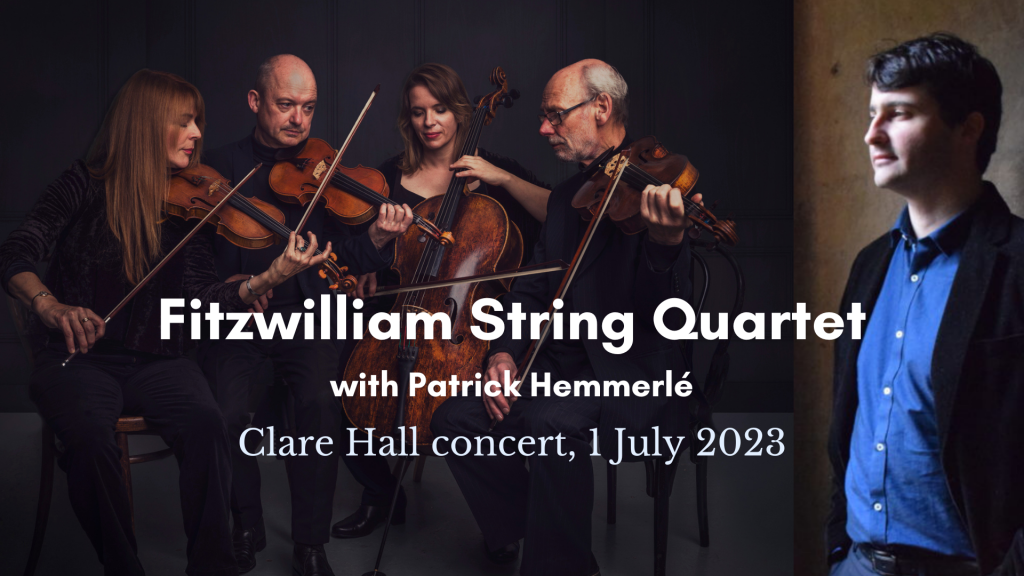
1 July 2023, 7.30pm
Tickets
£20 General Admission, £15 Clare Hall members, £5 students and children – please purchase via Eventbrite:
Programme
- Grainger – Molly on the Shore (1907/11)
- Delius – Late Swallows (1916)
- Liz Dilnot Johnson – Tide Purl (2013)
- Jeremy Thurlow – Fantazia (2009)
- Jessie Montgomery – Strum (2006/12)
- Elgar – Piano Quintet in A minor, Op.84 – with Patrick Hemmerlé
Following on from the first half of our 5 February concert, we now devote a whole concert to, well, if not English composers, then English speaking ones! That embraces Jessie Montgomery from New York and Percy Grainger from near Melbourne – although he too eventually became an American citizen, but not before spending many years in the British Isles – busily collecting folk tunes (this one is from Cork). On the other hand, his dear friend and mentor Frederick Delius moved away from Bradford to Florida, and eventually to a quiet riverside village near Fontainebleau, where most of his greatest music was composed. That did not include his 1916 string quartet, written while exiled to England by the First World War. This exquisite tone poem in miniature is its slow movement, in which he gives vent to the nostalgia of his far away garden in France. It is deeply touching that Elgar – though never close to Delius – chose to visit the stricken composer there, towards the end of both their lives (they died within four months of each other, in 1934). However, the piano quintet of 1918 does share a certain nostalgia with the expressivity of his future friend: ‘…it is strange music, I think I like it, but it’s ghostly stuff’ (to be revealed on 1 July…). Finally, into the present century, we find both Montgomery and Thurlow dancing energetically: she explains the title of her increasingly popular work, ‘The strumming pizzicato serves as a texture motive and the primary driving rhythmic underpinning of the piece’. Jeremy’s Fantazia was the third of the four pieces he has written for us (so far…): ‘In this little [tribute to Henry Purcell] I have taken as my starting point the vigorous dancing rhythms of [his] allegros’. Finally, one of our dearest composer friends (dating back to 1998), Liz’s Tide Purl is a characteristically delicate evocation of ‘the play of light on sand as river water flowed onto the beach one evening at Druidstone in Pembrokeshire’.
Useful information
- All concerts take place at 7.30pm in the College’s Dining Hall, in Clare Hall’s Main Site.
- Read about the musicians via their directory profiles – Alan George, Andrew Roberts, Lucy Russell, Heather Tuach – and discover more on the quartet’s website.
- Learn about Music at Clare Hall, and find details of further concerts on our events calendar.
- Accessibility details: full step-free access, accessible toilet, lift. For any accessibility queries, please email our Porters.
- For media enquiries, please email Clare Hall’s Communications and Marketing Manager.
- For any other questions, please email Rashel Pakbaz, Music Committee Administrator.
